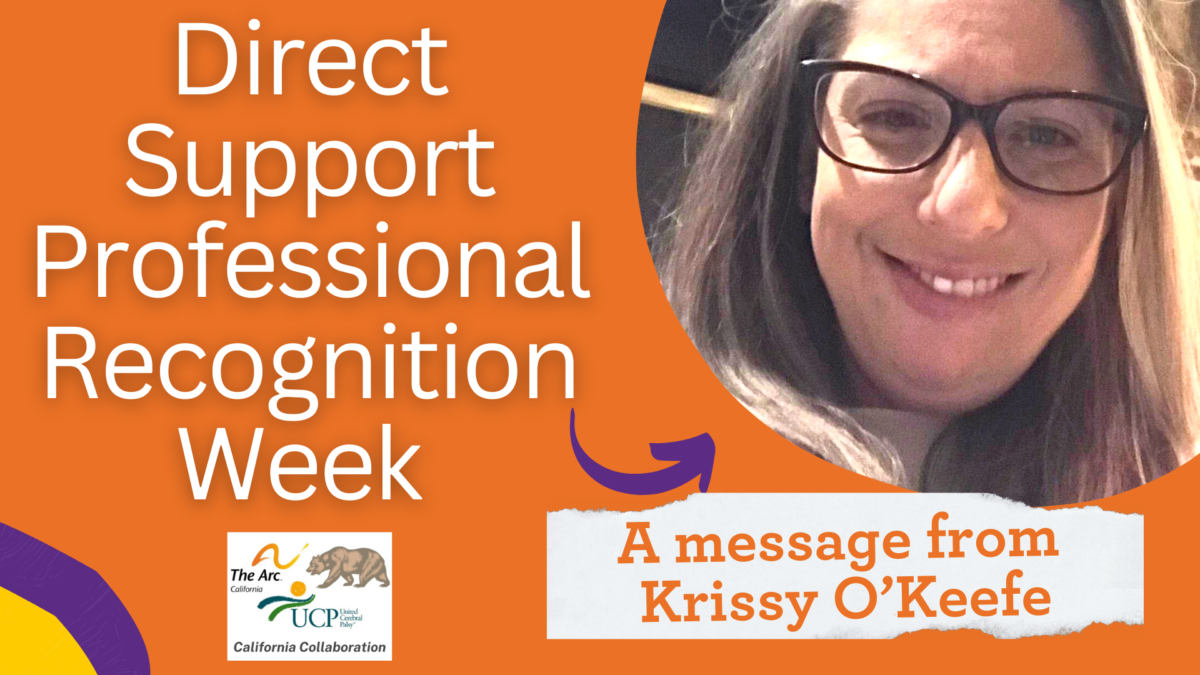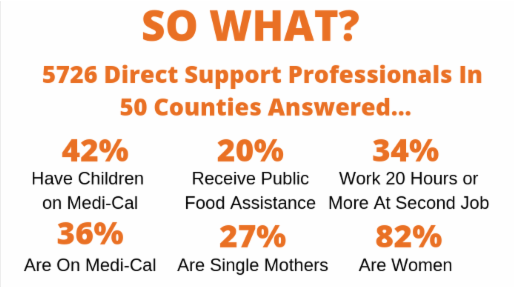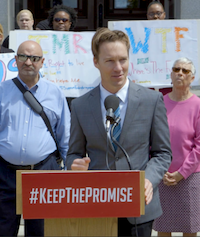By Jordan Lindsey, The Arc/UCP California Collaboration
Last week, Governor Gavin Newsom signed a new law that will raise wages to $20 per hour for the state’s 300,000 workers employed by fast-food chains. When signing the law, the Governor stated, “We have the opportunity to reward that contribution, reward that sacrifice, and stabilize an industry.” The law also includes the possibility of annual wage increases, beginning Jan. 1, 2025, of 3.5%, and could result in a wage of $25 per hour in the next few years.
Meanwhile, California’s 100,000 direct support professionals (DSPs), who heroically support people with developmental disabilities to participate in our communities and jobs, earn wages between $16-$20 per hour. Their contribution and their sacrifice also deserve to be rewarded, and the Governor, Legislature, and labor unions should commit to doing so by fighting for the same wage increase and annual adjustments. The state faces a critical shortage of direct-care staff to deliver services to people with disabilities due to receiving unlivable wages. Many work multiple jobs and rely on government assistance programs.
It was only a few years ago when the California Legislature and Governor attempted to stabilize the disability direct care workforce by passing $2 billion to increase reimbursement rates for direct service providers. Those new rates, which are dictated by rate models established by the state, provided hope for DSPs and the 400,000 Californians with developmental disabilities they support and their families. Unfortunately, that hope for a stabilized workforce and higher quality supports and services looks like it’s short-lived because in these last few years, the goalposts have been moved on people with disabilities. Just since 2020, the California consumer price index has inflated nearly 17%, but the rate models didn’t change as a result. And now, DSPs will be torn between doing a job they love and that brings support, opportunity, and dignity to individuals with disabilities, or making more money at a fast-food chain.
Governor Newsom, the Legislature, and labor unions should demonstrate their commitment to our direct care workforce the same way they just did for fast-food workers. The Arc & United Cerebral Palsy California Collaboration believes the commitment DSPs demonstrate daily to improving the lives of those they support with developmental disabilities demands it.






